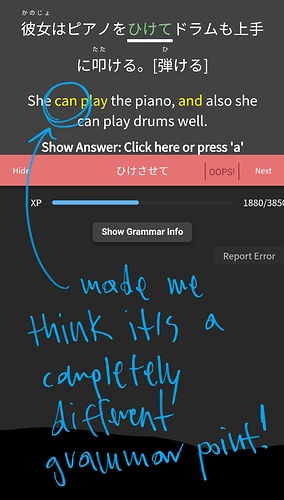Non-sequence
and
but (contrast)
parallel action/state
Structure
- Verb[ て ] + B
[Similar to adjectives, you can use Verb[て] without implying a sequence of time]
[Usually, the verb expresses a state/attribute, is in the potential form, or describes actions/events that have different topics/subjects]
[When parts of the sentence (clauses) that are connected with the て-form have different topics, it often implies that they are contrasted with one another. In those cases, when the contrast is strong, て can be also translated as “but” and can be rephrased to が/けど, etc. instead]
[The て-form is heavily dependent on context. The first sentence by itself can express the sequence “A then B,” but the second sentence can cancel the implied order of the first sentence and be understood as “B then A”]


